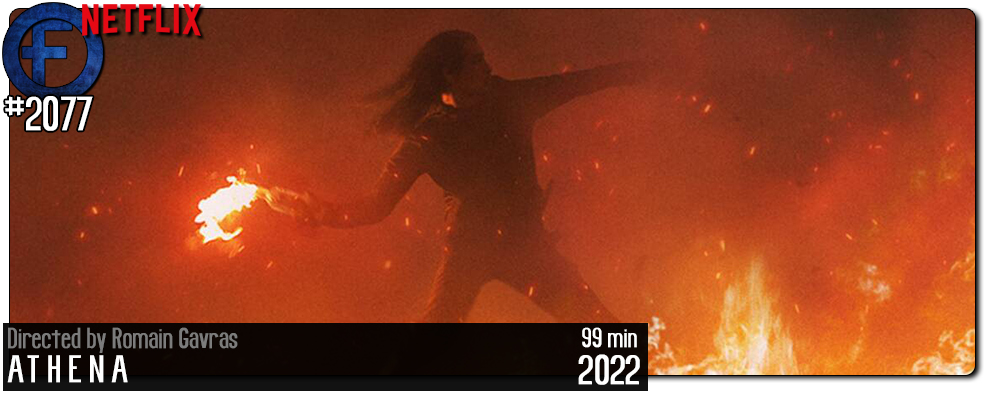Movie Review – Athena
Principal Cast : Dali Benssalah, Sami Slimane, Anthony Bajon, Ouassini Embarek, Alexis Manenti, Birane Ba, Hamidine Sy.
Synopsis: Hours after the tragic death of their youngest brother in unexplained circumstances, three siblings have their lives thrown into chaos.
********
Rarely has a film been so arrogant, so bombastic, so immediately incendiary as Athena, French director Roman Gavras’ show-stopping dramatic thriller in which social disorder and police enmity circle the prescient import of politicised violence. Gavras’ film is a muscular, technically jaw-dropping long-take film, echoing the likes of Cuaron and Altman, peppered with rage, sadness and tragedy; led by two compelling performances and abetted by some remarkable production design, Athena – not a film about the ancient Greek deity of wisdom and war, sadly – is a triumph of spectacle and frustration that will linger long after the final credits, although it should be noted that the profundity of its message tends to become lost amid the hurly-burly of its combative, confrontational narrative.
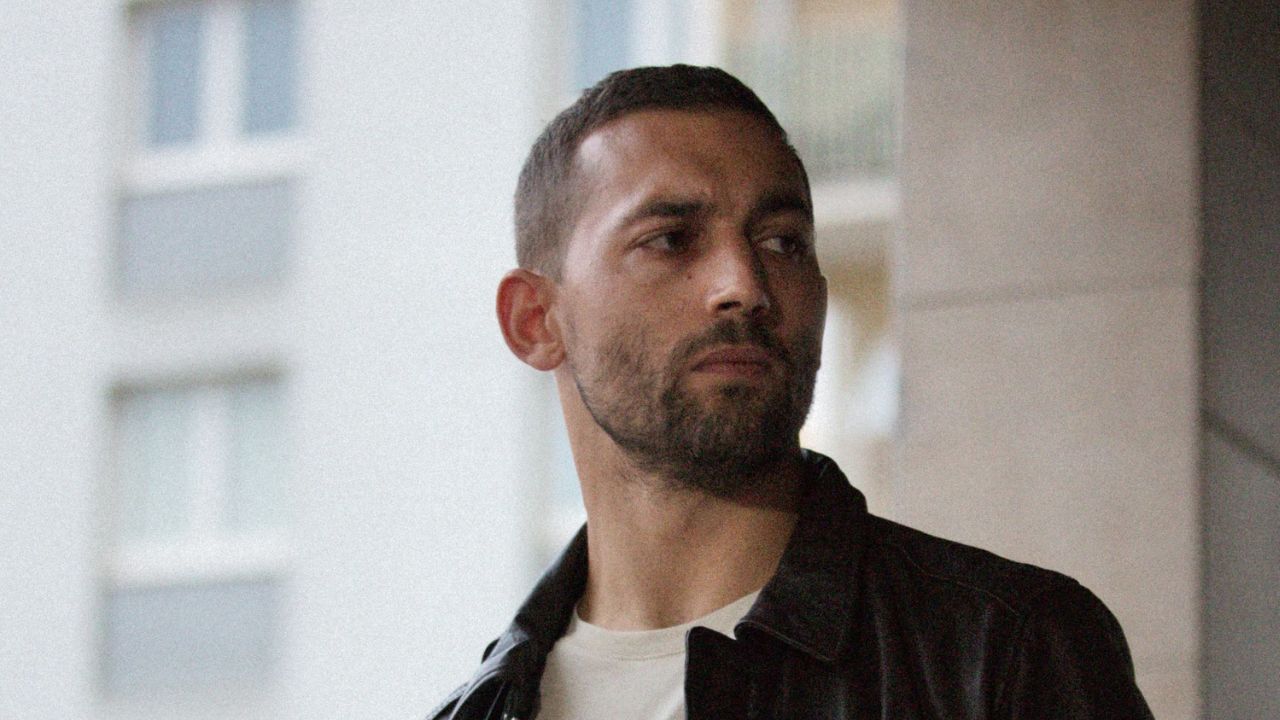
Set in the French suburb of Athena in an unnamed city (likely Paris), a wave of riots and violence has descended following the brutal murder of a local kid, Idir, at the hands of three policemen. The riots are led by one of Idir’s four brothers, the angry, resentful Karim (Sami Slimane), while his other siblings, drug and weapons kingpin Moktar (Ouassini Embarek) and the more circumspect Abdel (Dali Benssalah), try to both escape and prevent the carnage respectively. The family’s quiet, handicapped eldest son Sebastien (Alexis Manenti) is apparently unaware of the violence around him. When one of the legion of riot police sent in to quell the uprising, Jerome (Anthony Bajon) is separated from his enforcement brethren and captured, so begins a long, dreadful night of tension for the siblings as they have varied plans for his fate.
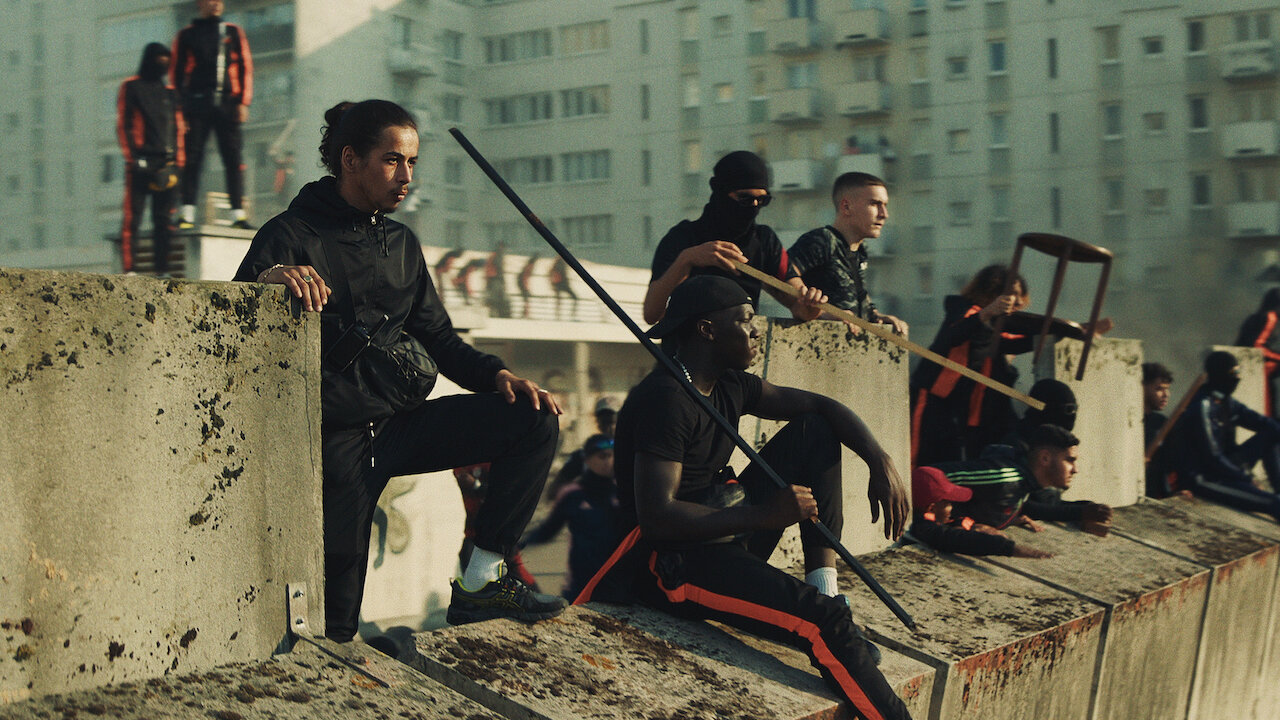
From its gangbuster opening sequence involving a raid on a local police station, to its ruinous climax of despair and tragedy, Athena is a film that will rattle the nerves and envelop you in cacophonous social decay. Alternating between dispiriting inequality for the inhabitants of Athena and freznied chaos of the police response, the film’s juggernaut action orientation and white-knuckle pacing waxes and wanes through dramatic turgidity and physical extravagance, as Gavras’ camera weaves through the suburban apartment complex superstructures with the precision and virtuosity of a showman in complete command of his skillset; this isn’t a film made by an up and coming talent, this is a flat-out Molotov cocktail of a movie thrown through the window of the viewer’s minds’ eye.
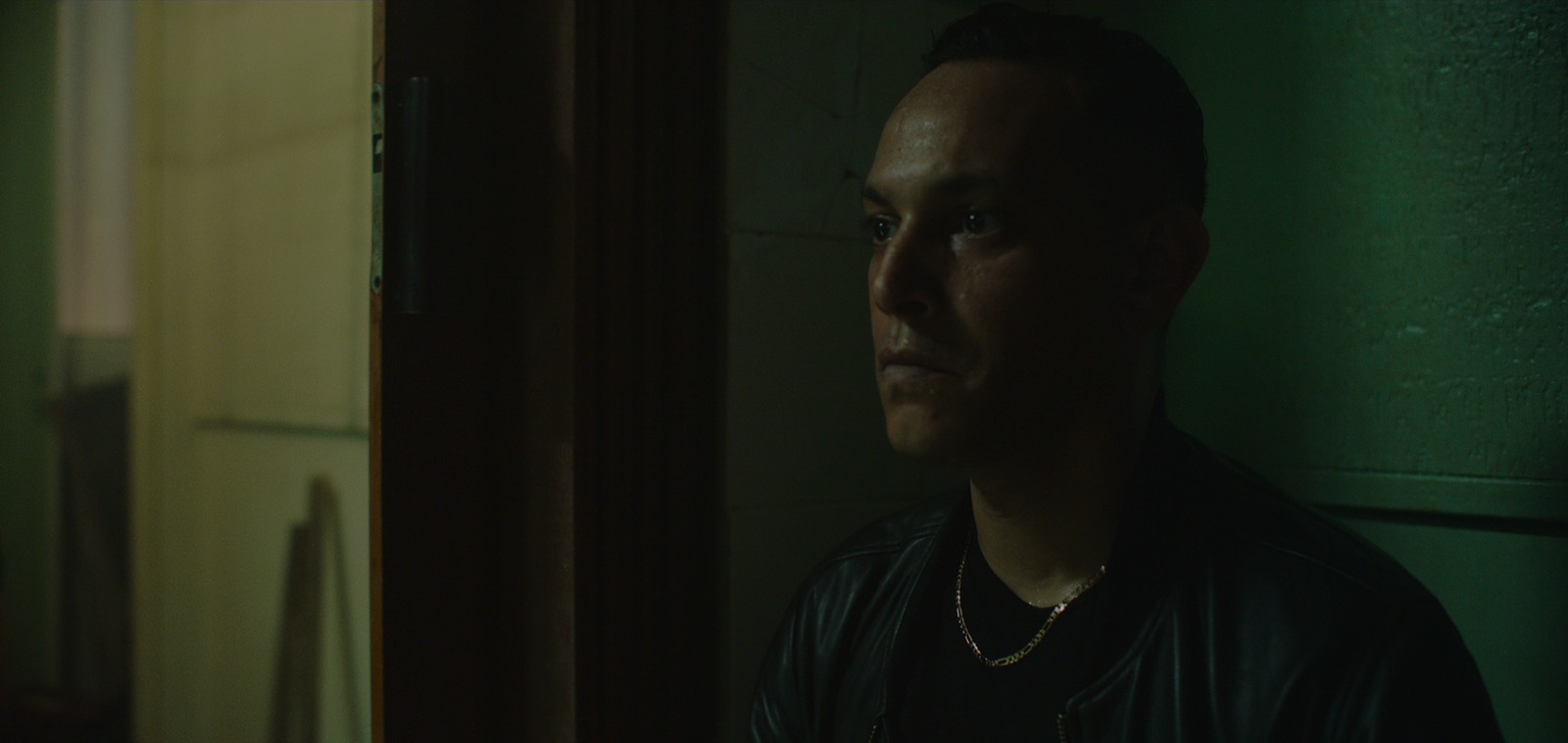
What begins as a revenge-driven action story soon becomes a more vastly more humanised dramatic piece, as our characters go from chest-thumping righteousness to little, angry people vying for scraps amid the anarchic descent. Gavras, who also wrote the screenplay, can’t quite maximise the depth of dramatic weight he aspires to, thanks largely in part to the immediacy of the mise-en-scene we’re thrust into, but through the vast ensemble of faceless sidebar players within his frame weaving a more intimate family underpinning is a trick worth enjoying. Initially we’re given the vantage point of Karim, a wild-eyed and stoically resentful man who only wants revenge for his brother’s death. Karim assumes a leadership role only because it was his brother Idir’s death that sparked the riots in the first place. Trading heavily on immigrant frustration with segregation (the French banlieue are notable for their poverty for immigrant inhabitants) and abuse of authority by the police, Athena’s violence-riven script is emblematic of a wider cultural and social predicament where cultures and beliefs are constantly forced into conflict by a perception (or actuality) of inequality, driving home Karim’s white-hot desire to quite literally burn the place to the ground.
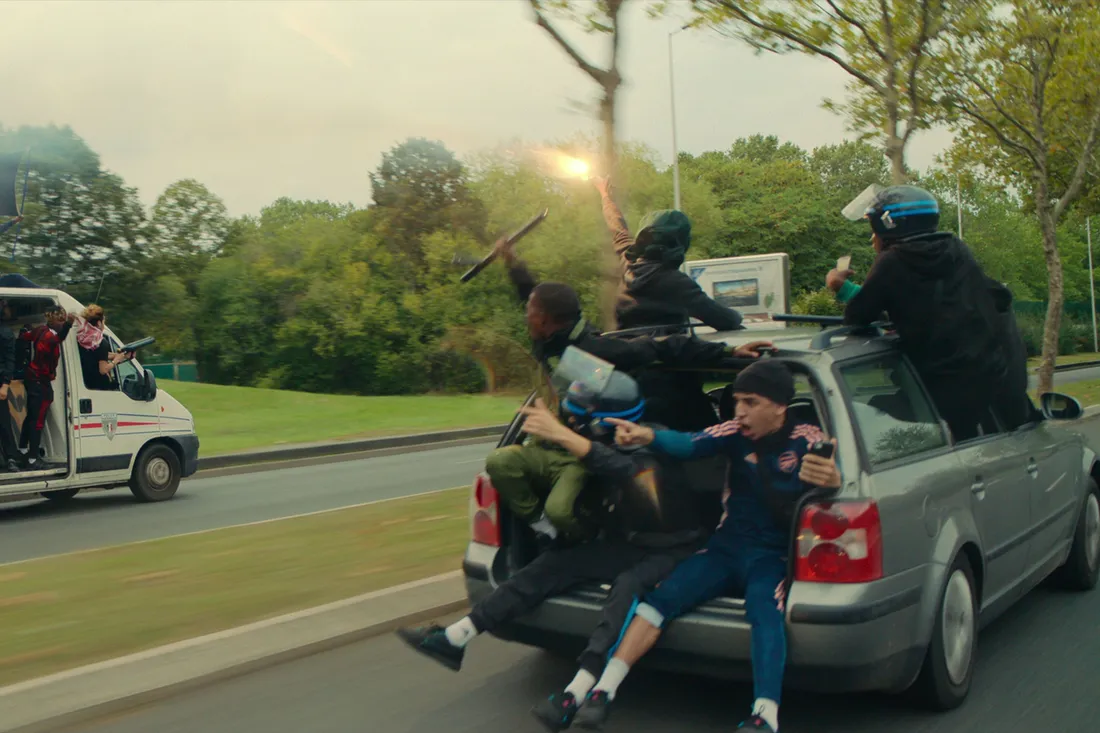
Contrast Karim’s approach to the far more even-handed Abdel, a respected member of his Muslim community, who tries to not only talk Karim down but also speak directly to one of his contacts inside the police response, played by Birane Ba, although his own belief about whether the police really killed Idir (it isn’t clear until the very end) mitigate his feelings of wrongdoing in Karim’s incitement of the crowd. Dali Benssalah, as Abdel, carries the weight of the film on his shoulders and I think he pulls it off admirably, despite not really being given a lot of exposition to work with: a lot of Abdel’s “character development” is simply wandering through hallways, staircases and basements of the vast apartment complexes comprising the banlieue looking for his brothers, which doesn’t allow for really deep and meaningful emotional heft. Less profound is the work of Ouassini Embarek as the wild-eyed and violence-prone Moktar, who is hoping to get all his drugs and guns out of the way of the approaching police before they capture him, and while the actor’s approach to the role is more about how much he can scream his dialogue there’s a rough enjoyableness to Moktar’s sad journey here.
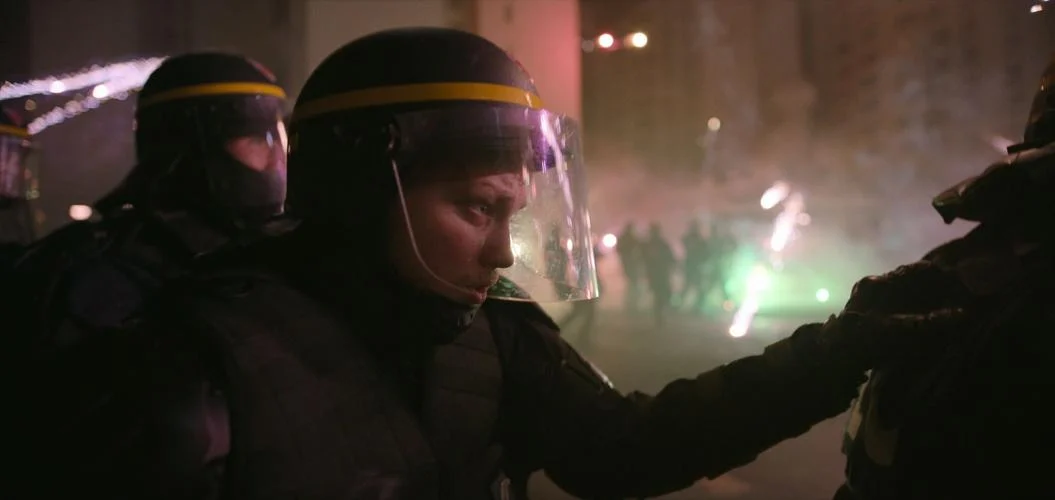
A lot of the film’s surrounding ephemera is the protracted evacuation of the banlieue of innocent residents, many of whom are young children and the elderly, whilst their youthful male members are firing off fireworks and Molotov cocktails at approaching law enforcement. The eponymous Jerome, the poor young policeman sent in riot gear to help quell the uprising, is inadvertently captured by the marauding gangs of rioting men, and naturally becomes a bargaining chip as well as a pawn in the rioter’s demands – if only they can agree on what those demands are. The constant battering of firework ignition – and there are a lot of fireworks let off in this movie, usually aimed at people – would be enough to put many people off this as a career but to their credit the French police… er… soldier on unimpinged. Jerome, played by Anthony Bajon, seems to not quite be the type of personality you’d expect to find in this kind of position, strutting alongside his hulking fellow officers into smoky haze and unknown violence. I admit, the setup of his introduction and the film’s continued return to him as a character prior to his capture foreshadowed the story point well before it happened – heck, one of the brothers’ even mentions maybe capturing one of the police to hold as a hostage twenty minutes before hand – and I wasn’t really that impressed with how the film managed this aspect of the narrative towards the end. It did, however, add some minor tension as various people throughout end up either severely injured or dead and you’re never quite sure who will make it out to the end alive. I guess with a main cast so small the choices are limited.
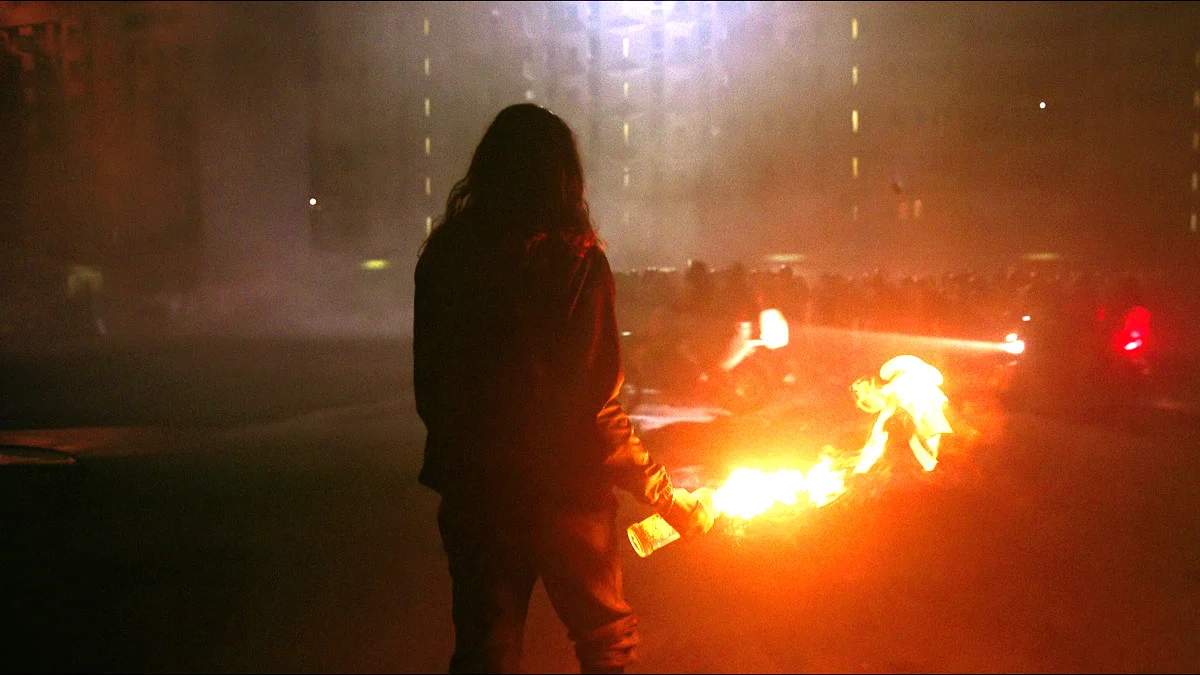
Athena’s impressiveness isn’t so much about the actors or the wide-scale destruction wrought before the camera, but rather how the director uses the camera to tell his story in multiple long-takes, all of which are stitched together superbly. I’m a big fan of directors who push boundaries of filmmaking technology and I sat with Athena, jaw on the floor, wondering how on Earth they managed to pull off some of the crazy, wild camera angles and long-take positioning they achieved here. It’s the kind of film that makes the long-take antics of big-budget Hollywood fare such as Extraction look positively pedestrian. The camera swoops and swings and flies through the air, dives to the ground and swivels as if held aloft by something unbound to the laws of physics, crafting a sublimely choreographed visual experience that would be a blitzkrieg on the big screen – sadly, Athena is only available on Netflix here in Australia, so I exhort you to see it on the biggest screen you possibly can at home! – and the edits of each take, the transitions between angles when the cuts do occur, are just breath-taking. A parental mix of Hardcore Henry with Children of Men and the swollen, enfant terrible is Gavras’ Athena, as hypnotic an expression of fizz-popping rage and form as you’ll ever see.
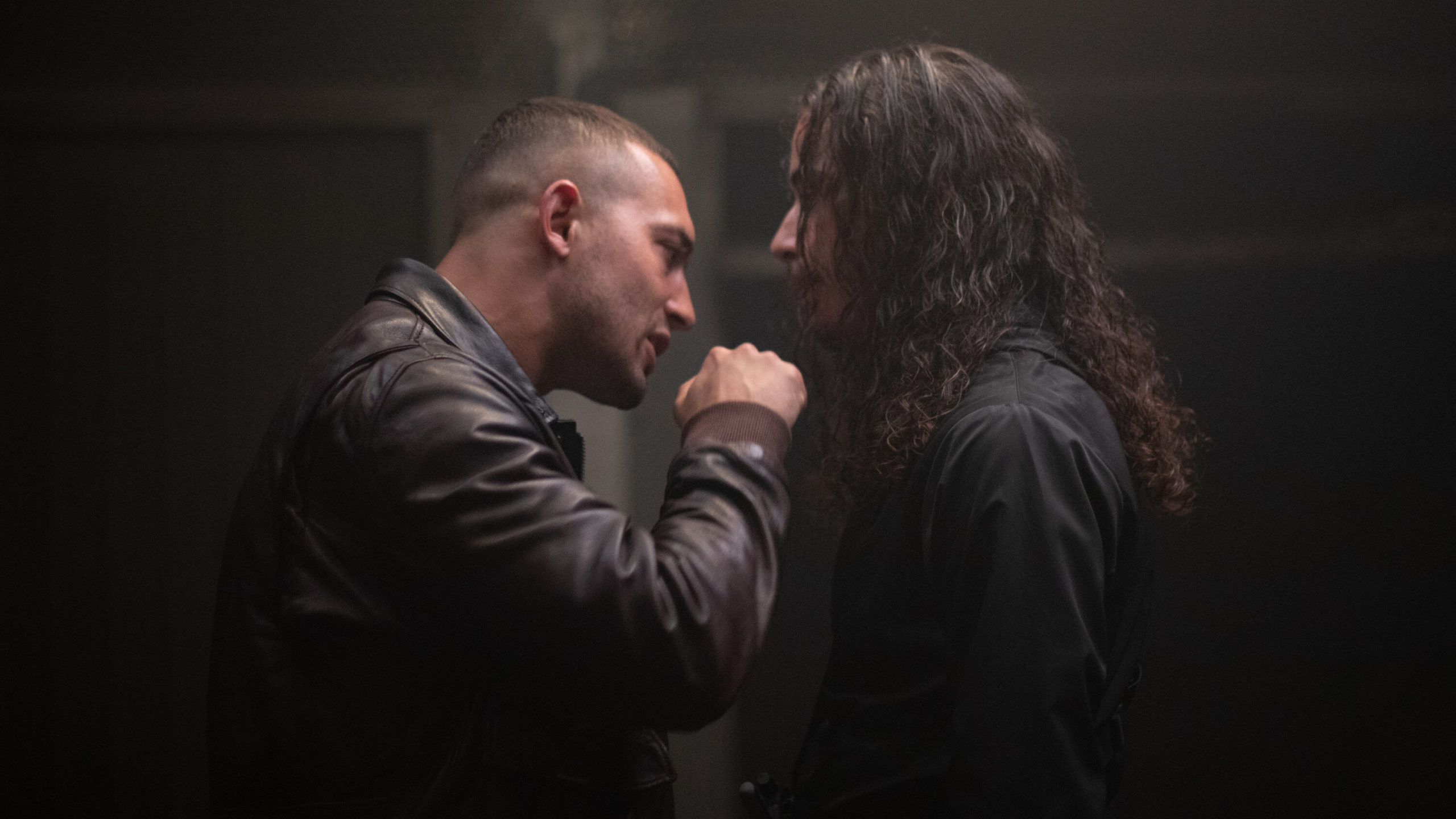
If I had one specific criticism it would be that I don’t think the film’s story will marinate long after completion as much as the way in which it is presented. The characters and firebrand visuals, together with the crunching symbolism of what Athena stands for or against, aren’t as cohesive or malignantly ingratiating as the techniques employed by the director’s honest-to-god behind-the-camera wizards. In the end I felt mainly antipathy towards Abdel and Karim, the two primary catalysts for the film’s confronting elements, the film holding them at a distance from the viewer despite almost incessant focus throughout. The virtuosic film-making on display is certainly effective, and the statement the film makes about police violence (and violence generally) rings true given events globally over the last decade or so – you’d have to be living under a rock not to make sense of what Gavras’ film is messaging to us – but the exhausting concentration of action and visual power isn’t married to a central character, or characters, to whom we are given time to empathise with. Which is worse, violence against a person or revenge for that violence? That appears to be the central question of Athena (it isn’t, it just appears that way) but the film isn’t complex enough with its intellectual execution to carry that weight.
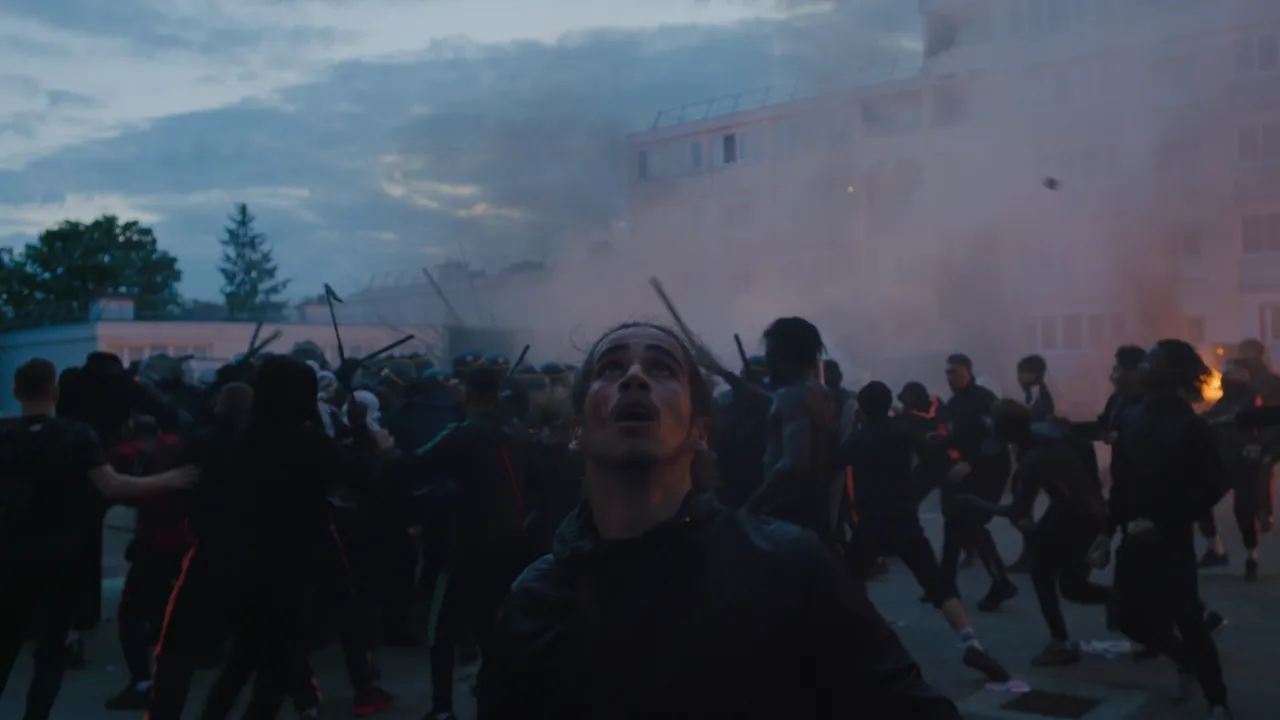
Athena is quite the ride. Filled with what I imagine to be a righteous anger and bubbling commentary on social decay, Athena isn’t a film of nuance or subjectivity – it makes its statements, makes them loud and long, and filled with a Big Swinging Dick mentality you just can’t help but admire. This is a film with a definitive point to prove, it’s whether or not you’ll appreciate that point that’s the contention. Definitely a must see.

